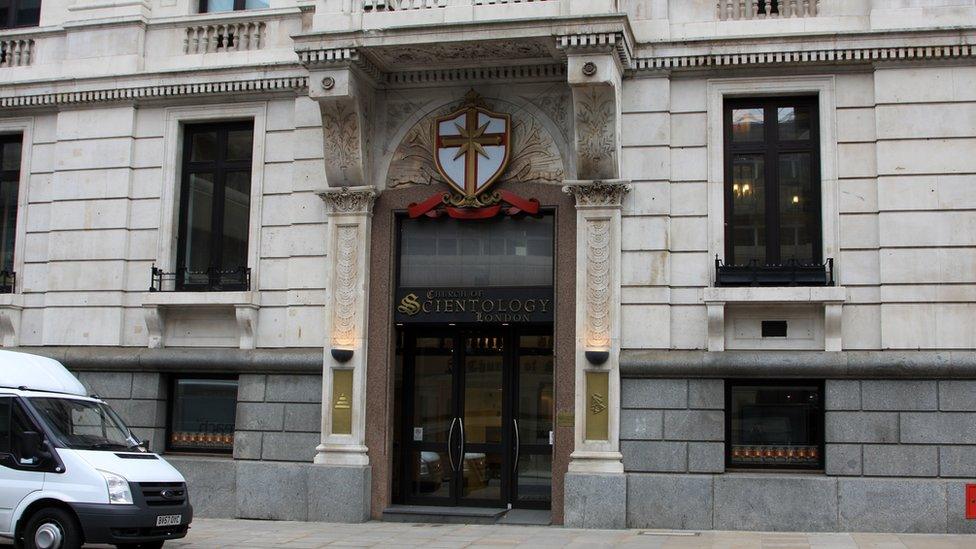Church of Scientology wins 'public religious worship' appeal
- Published

The Church of Scientology's chapel has won its fight to be classified as a public place of worship
The Church of Scientology has won an appeal over whether its chapel is a place of "public religious worship".
The dispute, presented to a specialist valuation tribunal, concerned two buildings used by the church in London.
A judge previously ruled the chapel was not a place of public worship and so not exempt from non-domestic rating.
Two appeal tribunal judges overturned this finding after concluding the church "actively invites non-Scientologists" to join its services.
The legal battle was brought to tribunal after the Church of Scientology Religious Education College said parts of its building at 146 Queen Victoria Street in the City of London were "exempt from non-domestic rating", a tax on properties not used for living accommodation, as it was a public place of worship.
A valuation tribunal judge had previously ruled in favour of HM Revenue & Customs, agreeing the buildings were not a place of public worship.
'Strangers are welcome'
Following the most recent tribunal hearing, which was held in October, judges Mark Higgin and Martin Rodger published their ruling online earlier.
"The building itself indicates by its permanent signage and branding that it is a place where strangers are welcome, including to attend services," said the judges.
"The church actively invites non-Scientologists who have had no previous significant contact with the religion to participate in its services as a way of introducing them to its message and encouraging them to discover more."
The judges had heard evidence from several church members including the director of special affairs in London, Stefania Cisco.
She told the tribunal "the church's entire emphasis" was "towards inviting the public into our premises" and "providing help and services to as many people as possible".
Hui Ling McCarthy KC, representing HM Revenue & Customs, told judges that the church looked "like an office building". She also highlighted the church's "relative lack of success in attracting members of the general public to its services".